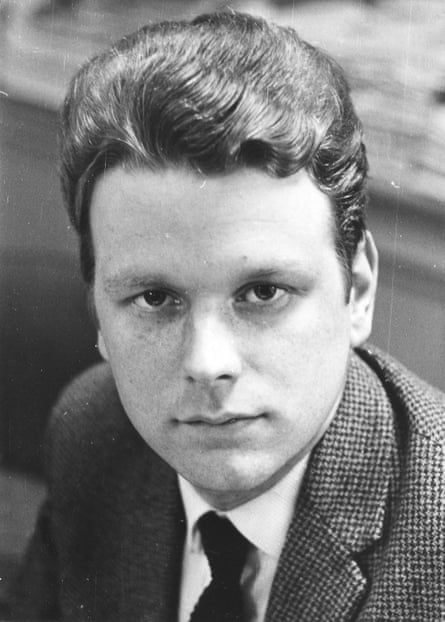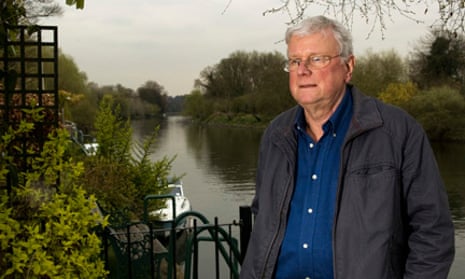When the journalist and author Dan van der Vat, who has died aged 79, opened the Times’s bureau in South Africa in 1969, his strongly liberal views clashed with those of the apartheid government. He was proud to be described once as a “pernicious liberal”.
His colleague Peter Norman recalled that the locals were puzzled by his Dutch name, wondering how a Boer could write such progressive articles. When the authorities decided they had had enough, they expelled him and he displayed above his desk the letter informing him that he was “no longer welcome” in the country.
In 1972 he moved to Germany to become the paper’s bureau chief in Bonn, where I first met him through being posted to the British embassy. We each reported on the lively political developments of the era of Willy Brandt, Helmut Schmidt and Helmut Kohl, and became friends, as did our families. Dan quickly earned the respect of senior German politicians and, a fluent speaker of the language, was a frequent performer on radio and TV.
After five years he moved back to London as a feature writer, but felt out of sympathy with the new regime when Rupert Murdoch’s News International bought the Times in 1981, and the following year moved to the Guardian as chief foreign leader writer. In 1988 he left to become a full-time author, while still contributing obituaries to the paper.

As a young journalist Dan had visited the Orkney Islands, and was struck both by their scenic beauty and the historical significance of the 1919 scuttling of the Kaiser’s fleet in Scapa Flow. When he realised that nobody had written about this extraordinary act of self-destruction, he used the period of the Times lockout of 1978 to research what became his first publication, The Grand Scuttle (1982).
Its success led him to write more on German first world war naval history and then on the second world war. The appearance of The Atlantic Campaign (1988) led an American publisher to ask for The Pacific Campaign (1992): when Dan replied that the amount on offer was not enough for him to leave his day job on the Guardian, the sum was increased so that he could. Pearl Harbor (2001), a bestseller in the US, was followed by D-Day (2003).
The fall of the Berlin Wall encouraged him to look closely at East Germany, and the result was Freedom Was Never Like This (1991). The Good Nazi: The Life and Lies of Albert Speer (1997) told the story of Hitler’s architect and armaments minister.
Closer to home, Dan researched the history of Eel Pie Island (2009), located in the Thames at Twickenham, with his fellow local resident Michele Whitby. She told the story of how in the 1960s a hotel on the island served as a venue where trad jazz and rhythm and blues made way for the first gigs by the Rolling Stones, Rod Stewart and others. Standard of Power (2000) was a history of the Royal Navy in the 20th century, and Dan had embarked on the writing of his memoirs.
Born in Alkmaar in North Holland, the Netherlands, he was the son of a Dutch father, Daan, also a journalist and author, and an English mother, Kathleen (nee Devanney). He had vivid memories of his early childhood in his Nazi-occupied homeland, and the delight of meeting the liberating Canadian soldiers. Later he persuaded his mother to write down her recollections, which he published with a commentary as Kathleen’s War (2011).
In 1945 the family moved to London and he went to the Catholic Cardinal Vaughan Memorial school in Holland Park. At St Cuthbert’s Society, Durham University, he graduated in classics in 1960. He started in journalism with the Journal in Newcastle upon Tyne, and then the Daily Mail in Manchester. In 1965 he was recruited by the Sunday Times in 1965, transferring two years later to the Times to become a foreign correspondent.
While at Durham he had met a fellow student, Chris Ellis, and they married in 1962 – without first telling their parents, his being strongly Catholic and hers Protestant; her father was a canon of Liverpool Cathedral. They had two daughters, Karen and Sara, and Chris worked as a classics scholar and teacher.
Their house on Eel Pie Island had a garden bordering directly on the tidal Thames and Dan was chair of the Eel Pie Association. Friends always appreciated his stimulating conversation – always liberal, green and strongly pro-European – and maintained a regular Proms group to enjoy concerts in the Royal Albert Hall.
Chris died in 2013. Dan is survived by his daughters and by his grandchildren, James and Katie.

Comments (…)
Sign in or create your Guardian account to join the discussion